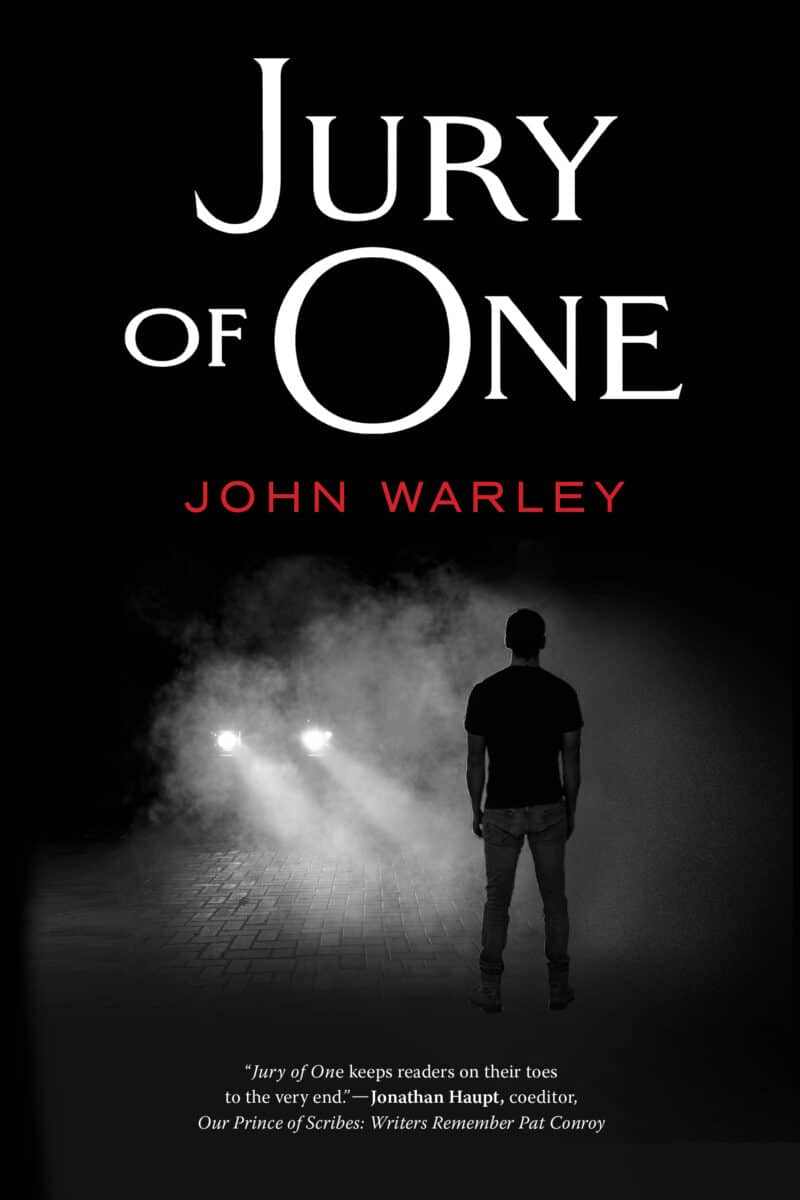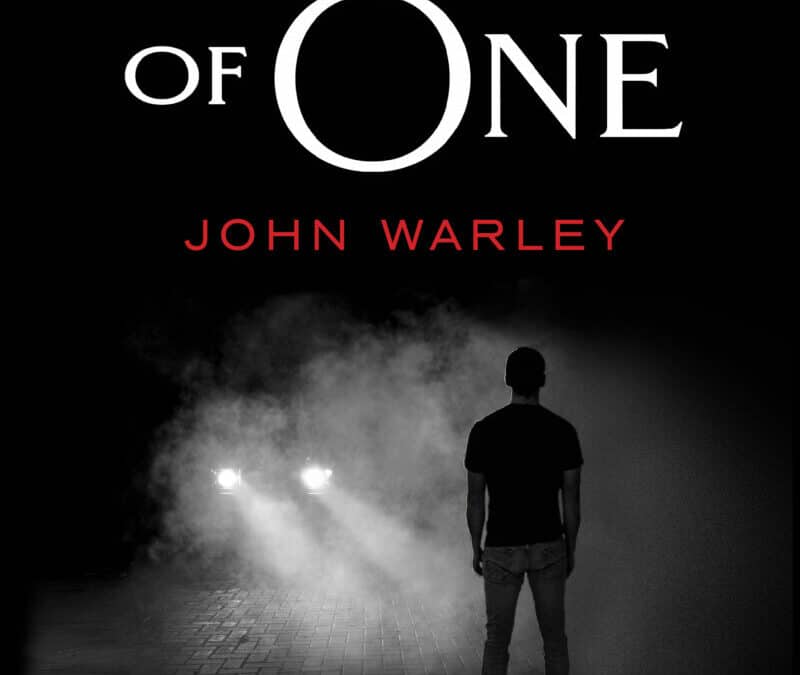John Warley is the award-winning author of seven books. His bestselling novel, A Southern Girl, was praised by Pat Conroy as “stylish as a novel by John Irving and as tightly written as one by John Grisham.” His history of his undergraduate alma mater, Stand Forever, Yielding Never: The Citadel in the 21st Century, led to his selection to write both the inscription for the college’s war memorial and “The Citadel at War,” a narrative history of the wars and conflicts in which Citadel alumni have made the ultimate sacrifice. NPR selected his essay “Lingering at the Doors” for publication in This I Believe on Fatherhood. A graduate of the University of Virginia School of Law, he drew on decades of experience practicing law in writing A Jury of One.

In this legal thriller, South Carolina Circuit Court judge Dan Borders appears poised for selection to the state Supreme Court thanks to his controversial proposal for dealing with death penalty cases. But a divorce he entered years earlier for Alana Morgan, a bright, ambitious school teacher, leads to a relationship that puts both of their futures in jeopardy. On the night Alana’s ex, Toby, is killed, Dan finds himself in the wrong place at the wrong time. He and Alana strike a deal that may save them both.
Can Dan trust Alana to keep her vow of silence? Can she rely on him to protect her when an aggressive young Indian prosecutor realizes her account of the confrontation raises suspicions? Alana and Dan depend on each other to avoid the cliff that awaits both if the pact is broken as A Jury of One pushes the limits of human trust and moral reckoning to an unforgettable climax.
- How did the themes behind Jury of One come about?
The original theme, an “early exit” for felons sentenced to life without hope of parole, came to me in the late 1990s. I suspect it was inspired by The Innocence Project, which began having success reversing capital punishment convictions. Jury of One’s central theme is not the death penalty, but arbitrary and unfair application of it gave me the idea for the novel.
- Where/how do you feel most inspired to tell stories?
Book clubs stimulate me—both the questions asked and the responses to what I share. Readers have as much to tell writers as writers have to tell readers.
- What is the biggest challenge you run into when writing?
Research. I do it, but I don’t like it.
- If you were giving a lecture to young, aspiring writers, what advice would you have for them?
Read. Read fiction, nonfiction, essays, and don’t forget about poetry. Find authors that appeal to you and try to figure out why that appeal is so strong.
- What lessons do you find most important to share?
Never end the writing day at the end of a chapter. Even if you do nothing more than begin the next chapter with “Meanwhile,” begin it. A blank page with blank thoughts is a terrible thing to confront the following day.
- In your book, Jury of One, what aspect was the most difficult to write?
Chapter 1, “The Shooting,” was difficult because my knowledge of crime scene investigation and ballistics is limited, and it needed to be right. The research to make it right was tough.
- What is your favorite part?
The scene at the observatory (chapter 43), when Dan and Andy are sharing philosophy.
- Many writers have a distinct process when they start a new project. Do you plan the entire story out with a storyboard, or do you let character and plot lead you to the finish line?
I can’t imagine starting a book without the opening chapter more or less written in my head. And I usually, but not always, know where the story ends up. But between those bookends is where the magic happens for a writer, and hopefully for a reader. Characters take you down unexpected paths, leaving you as surprised as the reader when the writing is going well.
- Borrowing from the podcast, Work in Progress with Sophia Bush, what is a work in progress in your life?
I came to writing late—in my mid-forties—and I’ve been trying to catch up to those who heard that calling earlier. My work in progress is to incorporate the experience of decades into books that resonate with readers.








